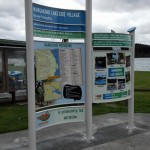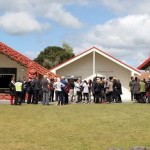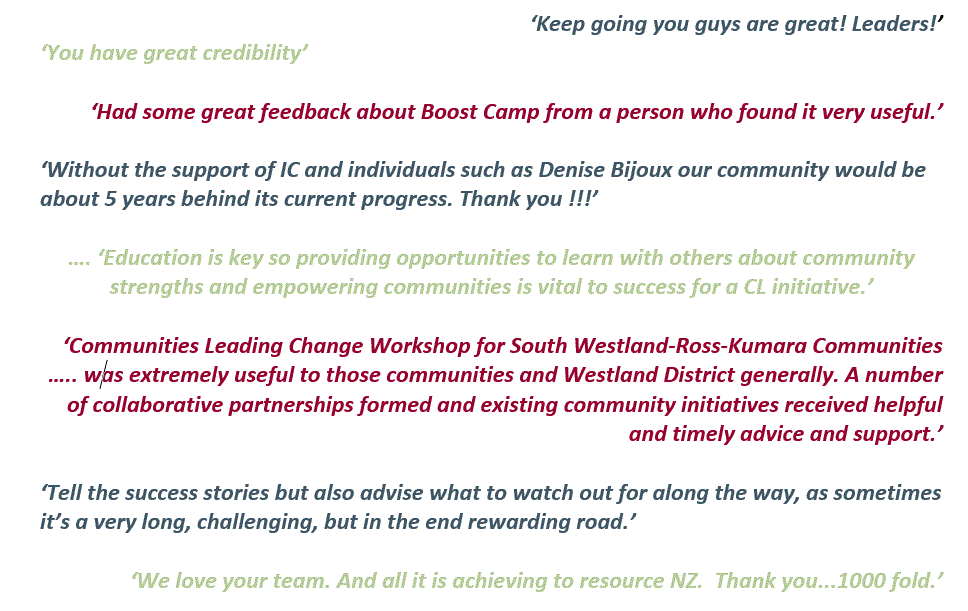Kore Hiakai Zero Hunger Collective
Resilience takes courage. And trust.
Coming together as a community to brave a storm, such as the Covid-19 pandemic, requires a whole lot of both.
All over Aotearoa New Zealand, social service agencies, social enterprises, food industries and community-led initiatives have been increasingly responding to food insecurity. With the economic effects of Covid-19 taking hold from early on, many new community-led initiatives popped up to ensure local people are fed.
One example of this immediate locally-led action has been the Sikh Community who fed 15,000 families across Aotearoa,in an enormous group-effort over two weeks in April. Starting with the Takanini Gurudwara Sikh temple community where volunteers cooked enough meals within 24 hours to feed several hundred families. These families were given a food package to get them through the following few days. For many, this would have been the first time they would have reached out for help and queued at a foodbank in order to feed their families.
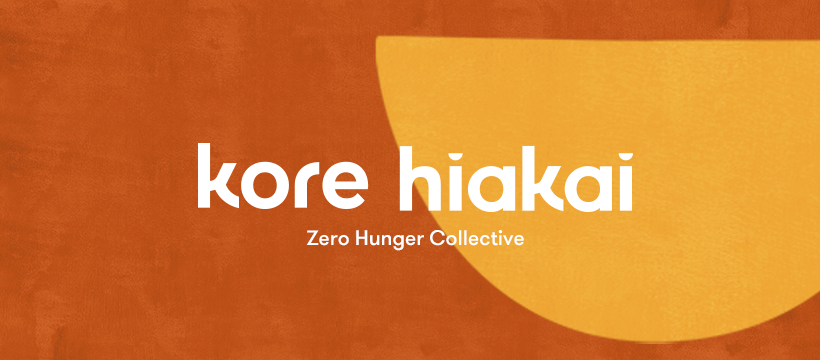
“We must address the various causes across all levels of society to combat food poverty across the country now.”
Tric Malcolm, Pou Ārahi Executive Officer for Kore Hiakai Zero Hunger Collective says the growing number of communities and organisations stepping up to meet the increasing demand for food support is fantastic. “But without a systematic approach, this growth may lead to greater dependency. We must address the various causes across all levels of society to combat food poverty across the country now.”
Building from strengths
The Kore Hiakai Zero Hunger Collective was established in 2019 with the ambition to tackle this problem through a joined-up national strategy to end food poverty in New Zealand.
Read more
While initial conversations about building a coalition started about three years ago, organisations from all parts of the food ecosystem came together for three open-space hui in 2019. Gathering perspectives on how to develop a strategic and systematic approach of working together, these hui identified three core pou, or pillars, as essential to combating food poverty:
- 1. Structural change
- 2. Mana enhancing contributions and actions, and
- 3. Sustainable systems for long-term solutions.
A shared vision for systems change
These pou are now the core values of the six organisations that have joined forces under the Kore Hiakai umbrella: the City Missions of Auckland, Wellington and Christchurch, the NZ Council of Christian Social Services, Salvation Army New Zealand, and the Vision West Community Trust.
Requiring a collective solution that all levels of society can get behind and that will enable individuals, has been the driving force behind Kore Hiakai. The Collective builds on the individual partner strengths to develop a big-picture, long-term and sustainable solution. Weaving together the wisdom and skills of the partners to form a strong, united approach, the Collective can act as enablers for community organisations, and as connectors: for example, establishing more direct collaboration with the Ministry of Social Development, building a two-way exchange on needs, issues and ways forward, has been important progress. “Traditionally, relationships have focused around contracts and funding decisions, without a direct exchange of information and discussion about the broader policy issues arising,” Tric says.
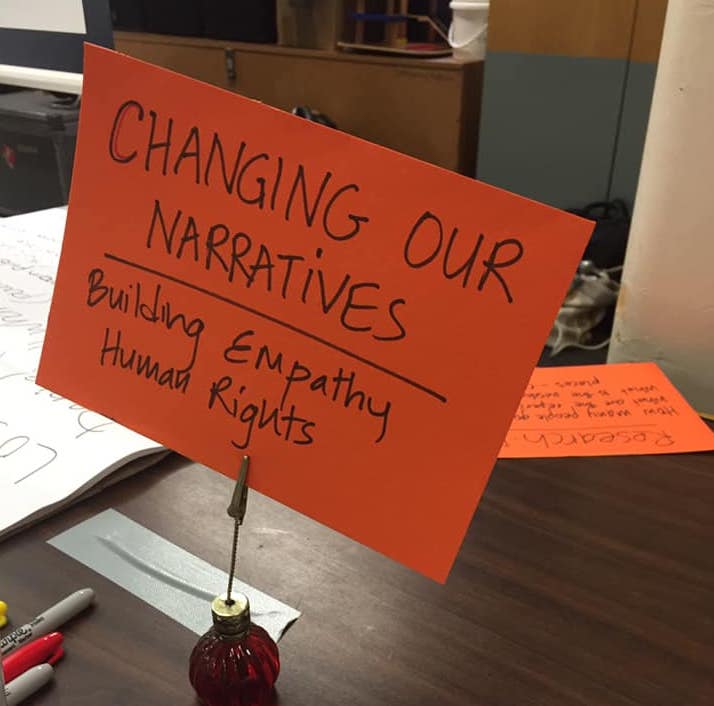
We’re now able to put options to the government as to what long-term strategies may be.”
“If decisions are informed by people who are actually working on the frontline of the crisis, they are much more likely to result in lasting changes,” adds Tric. “We want to move beyond the food parcel model. Combating poverty is ultimately about community and connection. And this is what we are working on, together.”
Having strong relationships and working from a place of trust meant the organisations could immediately jump into action when Covid-19 hit. Both Tric and Kelvin Moffat, General Manager Service and Contracts Management at the Ministry, point out that having worked together for three months before the country moved into Lockdown enabled a much more effective and collective response, says Tric:
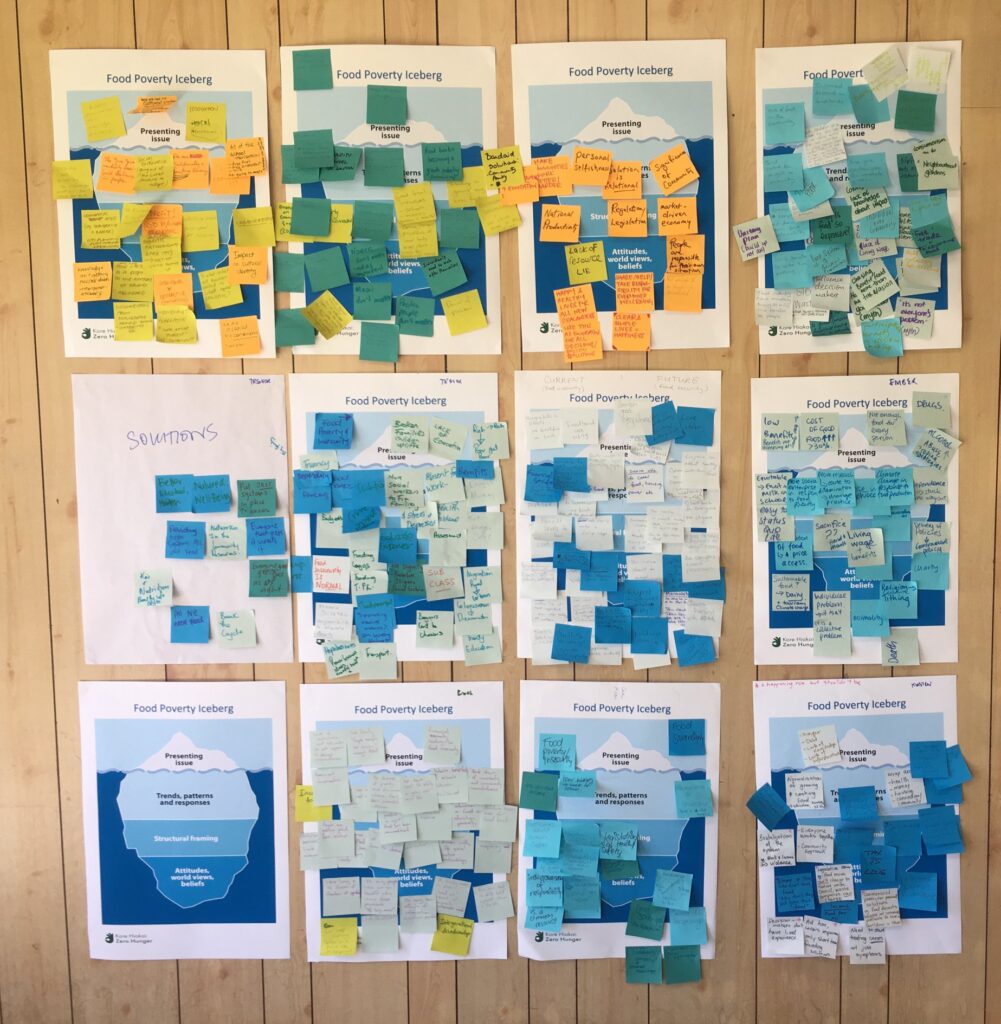
“What would usually take 12 months now took us three weeks.”
And this way of working together is here to stay: There will be “no back to normal” as in how things were before, agree Tric and Kelvin.
To find out more about Kore Hiakai, please visit their website or contact them via email: korehiakai@nzccss.org.nz
My Inspiring Community – Randwick Park
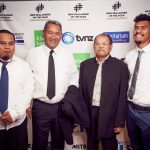 They began asking locals what would improve their place … a few years later Randwick Park has won 2017 community of the year. Maree Beaven recently talked to us about what they’ve achieved so far and how.
They began asking locals what would improve their place … a few years later Randwick Park has won 2017 community of the year. Maree Beaven recently talked to us about what they’ve achieved so far and how.
Randwick Park has also very kindly shared their story to be apart of our 2017 election manifesto please feel free to read it, and share it.
Mangakino & Whakamaru Heritage Trail
The Mangakino and Whakamaru Heritage trail has been blessed and opened (Nov 2016). When Mangakino people talked about their visions for the future during “Wow! E tū Mangakino! Let’s Dream” back in 2011, one of their community aspirations was to celebrate their area’s heritage more.
This trail is designed to link with the Waikato River Trails which attracts thousands of visitors PAST Mangakino annually – now the Heritage Trail offers them a side tour through the Townships and many memorable moments!
It’s taken a huge amount of research, persistence and patience from many people and especially Lisa, the local community broker. Recently the Mangakino community-led development group organised a community celebration for 70 years since the township was established, and blessed the new Heritage Trail – they invited everyone who had helped, along with residents of today and yesteryear. On a beautiful day at Pouakani Marae, locals, past residents and supporters gathered to enjoy and share memories, and to celebrate Mangakino.
Stone Soup – a mix of vision and action
By Judy Kumeroa
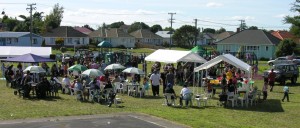 Te Ora Hou is based in Wanganui – we are a Maori, faith-based team, with six centres across Aotearoa, New Zealand.
Te Ora Hou is based in Wanganui – we are a Maori, faith-based team, with six centres across Aotearoa, New Zealand.
The foundation of our work is an initiative called Tiakina ō Tātou Tamariki ( run in Gonville West, Castlecliff South in Whanganui and and Kaiti/Titirangi in Gisborne) and it’s all about leading change for ourselves. This story concentrates on Stone Soup in Whanganui but it includes what we are learning from both neighbourhoods.
Our neighbourhood was not functioning well in 2007. We had a low trust in services and a low trust in each other. We then experienced a trauma and the impact raged across the community. In that moment we were activated to think and to act differently. We began to share ideas, and that is how Stone Soup began.
Stone Soup is a folk story from Eastern Europe – the philosophical point of the story, which is key to our place, is the belief that each person in our community has something of value to offer.
Stone Soup is a mix of things based around a vision for a peaceful, connected, caring community.
It’s a community room based at a local school. It is a bunch of great ideas that we try; such as a craft group, a walking group, Stone Soup radio station, Growing Gardeners and community dinners.
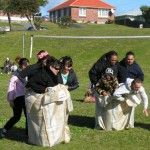 It’s a gathering we hold every two months at the local park, led by residents and others passionate about our collective capacity.
It’s a gathering we hold every two months at the local park, led by residents and others passionate about our collective capacity.
It’s a table at the gathering to sit around and talk about what’s hot, what’s not and what we want to do about it.
These are courageous conversations, sometimes making ourselves vulnerable to each other. We talk about child safety, speeding cars, bullying. We celebrate success from sobriety to the birth of a child.
We’ve acted on about 10% of the ideas generated from the korero across these activities including:
- Establishing a boys intermediate age youth group in response to concerns about unhealthy behaviours.
- Supporting three residents onto a school board to address community concerns.
- Developing a Driver Licence programme
- Supporting a woman to become a licensed Zumba teacher in return for one low cost Zumba class a week.
We’ve also developed an intentional conversation about family violence, the dynamics, and the various support residents can provide.
Empowering each other and taking steps to be an activator in your community is not a linear process! There are four key learnings that I hope you will find useful:
Enable people’s voices to be heard
The importance of this is illustrated in the journey of one of our neighbourhood mothers. Her family has a long history with services, and up until recently her children were under CYF care. She came to one of our park gatherings and after encouragement from us told her story, mentioning eventually that she was an alcoholic who had been sober for nine months, so things were going well for her. She told everyone if she could do others could also. This mother is now qualified in elder care, she got her first job, at 37 years. Her children are back her care, she is still alcohol free and she has found her voice.
Work with who you have
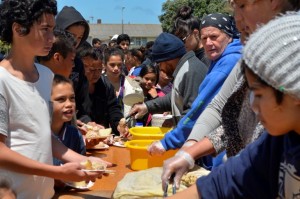 The impact of harmful, criminal gang behaviour had been one of the community’s biggest concerns, lives were being lost. After a number of korero our approach settled on inviting everyone to be part of the Stone Soup journey. The behaviour of one group was particularly challenging but over time their senior leadership articulated an aspiration for a better quality of life for their whanau. We are quietly encouraging that group, offering support to individuals at levels they can accept It’s a long term journey. Gang behaviour was not a top concern in our 2016 neighbourhood survey. This doesn’t mean all harmful behaviours have changed but we see change happening.
The impact of harmful, criminal gang behaviour had been one of the community’s biggest concerns, lives were being lost. After a number of korero our approach settled on inviting everyone to be part of the Stone Soup journey. The behaviour of one group was particularly challenging but over time their senior leadership articulated an aspiration for a better quality of life for their whanau. We are quietly encouraging that group, offering support to individuals at levels they can accept It’s a long term journey. Gang behaviour was not a top concern in our 2016 neighbourhood survey. This doesn’t mean all harmful behaviours have changed but we see change happening.
Practice Sugar-Free Story Telling
It’s tempting to sugar-coat our story, to make our stuff look better than it is. To roll out the successful achievements in a blaze of glory, to hide the unimpressive stuff, to simply deny the existence of the failures.
We were mindful of this trap and turned to Inspiring Communities to help us carry out a survey to measure change. The results were not that flash – the change we thought we’d seen wasn’t strongly backed up by data. We were gutted. We asked I C’s Denise Bijoux to ask us the interrupting, critical and hard questions to trigger ideas – think with fresh eyes. Having someone outside our community ask those hard questions has been valuable.
Understand Effective Funder Relationships
We’ve had funders join us along the way. A genuine high trust relationship, multi-year funding or cross-funder arrangements, feeling safe to tell the stories of failure and accountability reporting that captures stories of change are what we value the most.
Substantive relationships with supportive funders who are open to new approaches, has enabled us to shift our focus from filling funding gaps to focus on the vision of change we have – this is a Community Strategic Plan.
more information: teorahou.org.nz
IC Survey results demonstrate the Influence of IC and CLD
Inspiring Communities has been very influential in changing the thinking about community-led development and being a conduit to innovative ideas and Kiwi practice wisdom.
Survey respondent
Inspiring Communities November survey shows that IC and CLD are highly valued by respondents.
We are encouraged to see our newsletter, hosting international speakers, the resources we produce and the research we share as well as influencing others, our public policy work and Boost Camp all rated highly.
About 2/3 say that Inspiring Communities has contributed to the growing profile and awareness of CLD in NZ and almost 60% say CLD learning tools, stories and tips from Inspiring Communities have helped them in their roles. Over 70% of respondents highly regard our summaries and the ‘how to’s’ of CLD techniques and workshops based on Learning by Doing Chapters.
Comments suggest that Inspiring Communities could make these chapters even more useful by contextualising them via workshops and other presentations as well as sharing via Facebook, Skype and video as these are the most regularly used electronic tools.
Respondents also believe there is more work to be done in educating associated sectors. While definitive that CLD is a game changer, there is concern at a lack of understanding of its true value.
- Community-led development is important part of NZ’s future (85.17%)
- There is a need to strengthen community-leadership in NZ (83.90%)
- Local communities really understand their role in supporting local businesses (29.24%)
- Local businesses really understand their role in supporting local communities (23.73%)
- There is a good understanding of CLD within local government (23.30%)
- There is a good understanding of CLD within central government (17.80%)
The team is currently considering the opportunities raised in the survey. The series of training and events outlined later in this newsletter are just some of these initiatives.
Unfortunately there was a technical problem in collating contact details. We have been unable to get in touch with people who signalled an interest in working with us. If you did we would appreciate you contacting us at exchange@inspiringcommunities.org.nz and we will follow up.
Again we would like to thank everyone who took the time to complete this survey, it has certainly given us plenty of valuable information.
Thriving incubators of leadership in communities
By Chris Jansen
We have experienced an extreme range of experience since the earthquakes that rocked Greater Christchurch ,from fear, loss, frustration and anger on one hand, while on the other hand an immense and surprising renaissance of grass-roots community connections, initiatives and innovation.
How a plan comes together
 By Janine Boult, Kaiwaka Cares
By Janine Boult, Kaiwaka Cares
In a small community timing is everything. The same ideas may float to the surface again and again. What makes the difference is having a person, or people, to take the ideas and keep them alive and from them create a reality. That’s what’s happening in the small township of Kaiwaka in the gateway to Northland.
A group of like minded citizens were brought together in late 2014 as part of an initiative to improve what Kaiwaka has to offer and how it works with its community. Some members felt called to take up the challenge. This is how our group, Kaiwaka Cares, was born.
Since then the community service has grown to include re-development and upkeep of the community garden as well as the establishment of a drop-in centre – open three days a week. Whilst the garden feeds the body, the drop-in centre feeds the soul and the feeling of community within Kaiwaka.
Our committee has learnt as number of lessons over the past six months, and I am sure there will be more. Any time a new person enters a community they bring their own life’s experiences and knowledge. Often they are enthusiastic and want to change the world overnight and fill the gaps that a newcomer sees. It is hard to hold back and allow change to happen more organically.
In a community as old as Kaiwaka no idea is new, it has been thought of and attempted previously. The trick is to learn from the past, and to preserve and gain support from leaders in the community and the respected elders. In particular our idea of having a drop-in social space was unpopular with some. Many times we heard; it wouldn’t work, it was a waste of time, and how everyone already knows everyone.
We turned this around with a bit of thick skin, determination, stubbornness and resilience. By sitting down and sharing a cuppa with some of these people we have not only gained their knowledge and advice, we know they have our backs and we have their support. Yes there are still detractors, some more vocal than others but over time I hope that will change.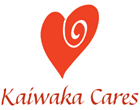
The biggest gift you can do for yourself when volunteering or creating something new for your community is to pace yourself. Take care of yourself first. Don’t try and do everything the first day, give it time. Take small steps and allow each step to fulfil its potential before expanding or trying to jump onto the next level.
I have a quote on the wall by my computer from Mother Teresa: “I can do things you cannot, you can do things I cannot; together we can do great things.” Putting this into our community is one of my goals. As a community if you leverage the skills and experience of all then you will have a community that your grandchildren will be proud of.
Read more about us caring4kaiwaka.blogspot.com

